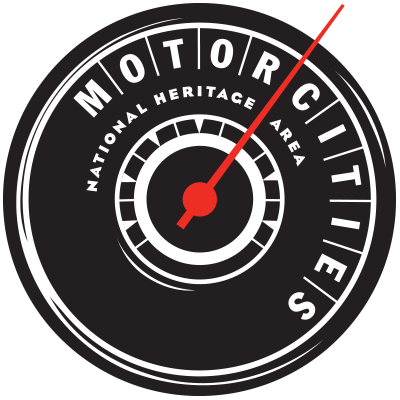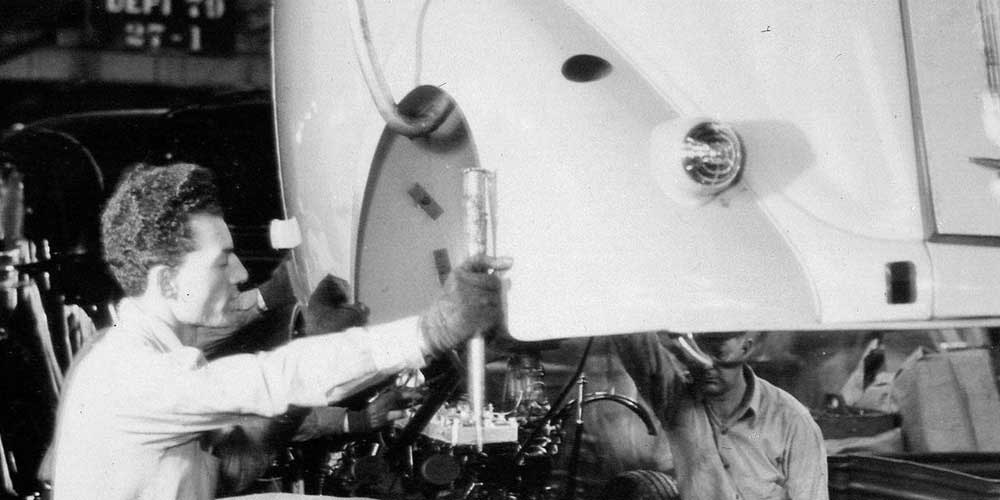By Robert Tate, Automotive Historian and Researcher
Images courtesy of GM Media Archives
Published 5.3.2023
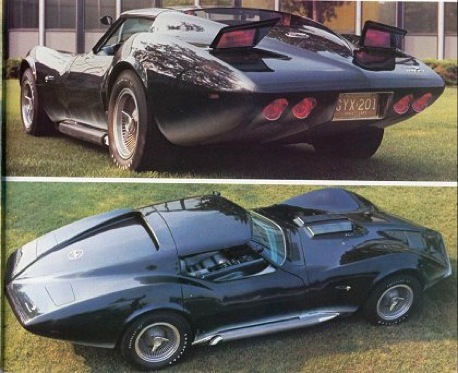 1969 Chevrolet Manta Ray concept front and rear design (GM Media Archives)
1969 Chevrolet Manta Ray concept front and rear design (GM Media Archives)
Bill Mitchell (July 2, 1912 - September 12, 1988) was one of the great automotive designers over General Motors’ storied history. His 18 years as GM Design Staff vice president produced a great legacy for the automotive community and the consumer market when it came to great styling.
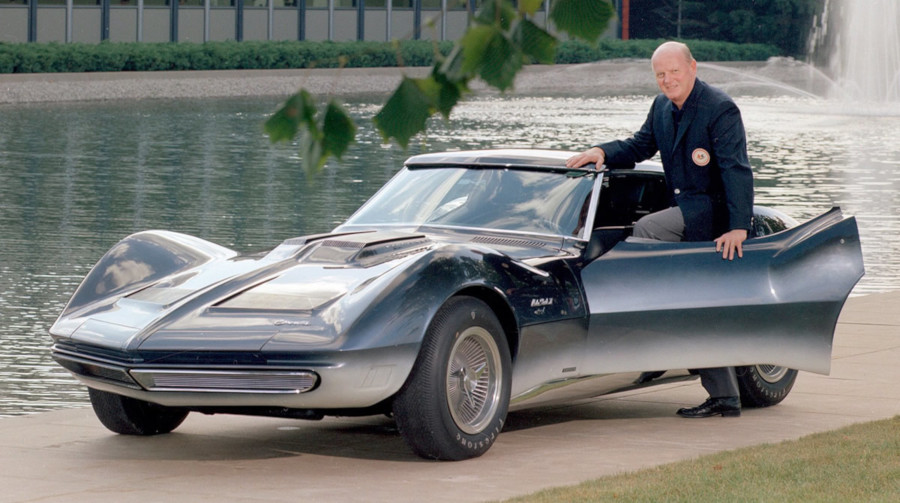 Bill Mitchell with the 1965 Mako Shark Concept Model (GM Media Archives)
Bill Mitchell with the 1965 Mako Shark Concept Model (GM Media Archives)
Mitchell was a tremendously driven person and very confident in his instincts regarding good and bad automotive design. Among my personal favorites are the SR-2 Corvette or the 1959 Sting Ray race car, which was initially painted red then refinished in a great looking metallic silver.
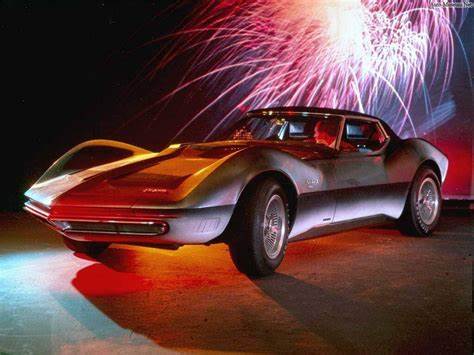 1965 Corvette Mako Shark II Concept (GM Media Archives)
1965 Corvette Mako Shark II Concept (GM Media Archives)
One of the most iconic designs that Mitchell introduced as a show car was the 1969 Corvette Manta Ray. It was derived from the earlier Mako Shark II concept unveiled in April 1965. The 1969 Manta Ray concept offered a longer design tail and a sugar scoop rear window design with pop-up mirror lights located in the rear fenders that really looked great. The Manta Ray also featured a low front spoiler design with outside exhaust pipes and a tiny rear-view mirror design which many Corvette enthusiasts thoroughly enjoyed.
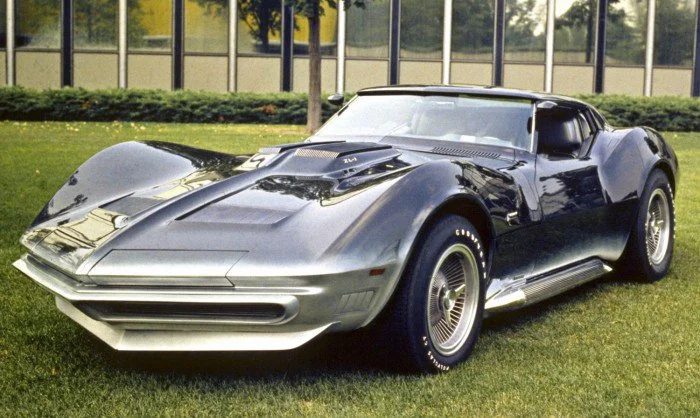 1969 Chevrolet Manta Ray concept model (GM Media Archives)
1969 Chevrolet Manta Ray concept model (GM Media Archives)
During the winter of 1969-1970, the Manta Ray underwent more design changes in the studio that included redesigned identification emblems with a new crossed-flag medallion design added atop the fuel filler cap. The Manta Ray was powered by an aluminum-block ZL-1 engine developed by Chevrolet for Can-Am racing with a special air cleaner as well. Finally, the Manta Ray was painted dark blue.
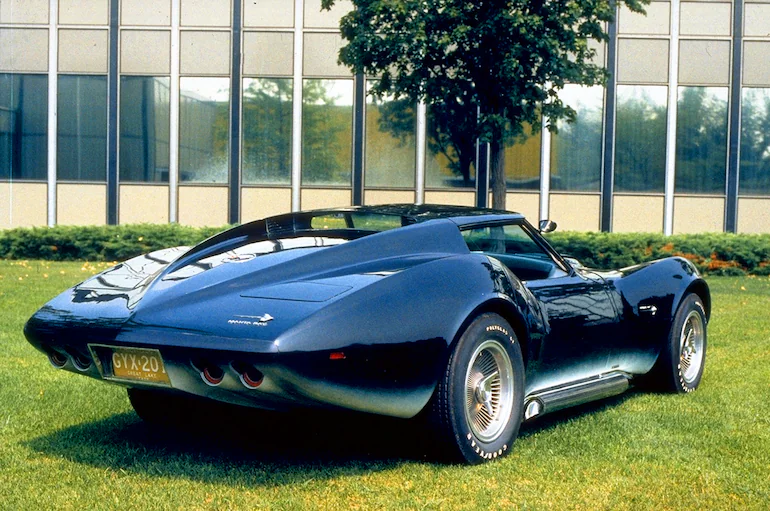 The 1969 Chevrolet Manta Ray rear end design (GM Media Archives)
The 1969 Chevrolet Manta Ray rear end design (GM Media Archives)
In 1969, Motor Trend magazine called the Manta Ray concept “Bill Mitchell’s Extreme Shark.” Mitchell enjoyed deep sea fishing as a form of recreation and was inspired by the manta ray which is where the concept vehicle’s name came.
The Manta Ray concept offered a great looking roof design that featured an attractive sweeping style roof style the public really enjoyed. The four taillights design was arranged under the rear bumper line with a center-located license plate holder, with its exposed exhaust pipes, elongated tail end design, and pop-up lights for turn signals, braking and warning lights. Not surprisingly, the vehicle was extremely popular with visitors to the Detroit Auto Show.
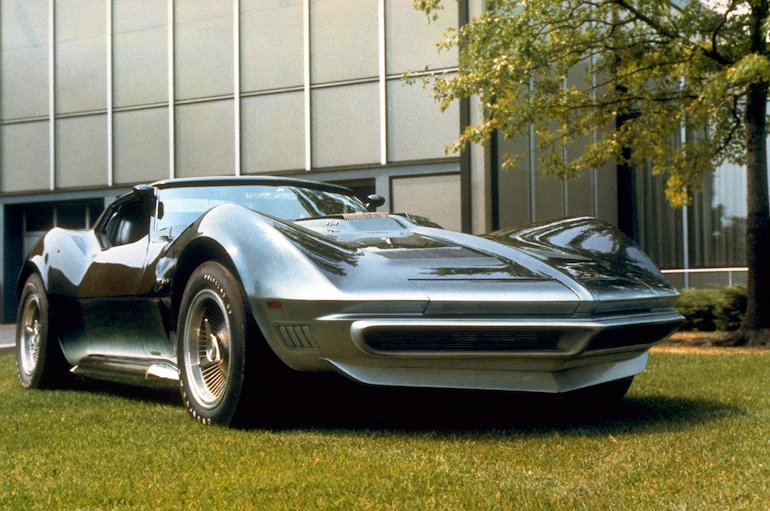 The 1969 Chevrolet Manta Ray front end design (GM Media Archives)
The 1969 Chevrolet Manta Ray front end design (GM Media Archives)
The Manta Ray’s timeless design makes it memorable to this day. Karl Ludvigsen, the author of “Corvette, America’s Star-Spangled Sports Car: The Complete History,” said this about the Corvette Manta Ray concept: “Mako Shark II/Manta Ray was built at a time, not so many years ago, when an exercise in pure automotive form could be undertaken at its own pace, for its own sake. It had been built in the tradition of the great GM dream cars, the Le Sabre, the Firebirds, the first Corvette, as an automobile whose many advanced features were fully operational.”
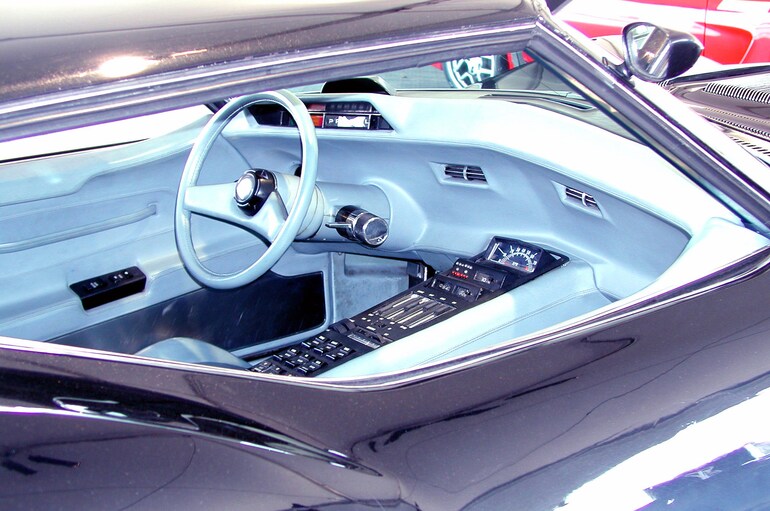 The 1969 Chevrolet Manta Ray interior (GM Media Archives)
The 1969 Chevrolet Manta Ray interior (GM Media Archives)
Some automotive historians have said that the Mako Shark II concept inspired the newly designed 1968 Corvette production model, which sold very well for Chevrolet and GM. Historians have also said that the Corvette Manta Ray concept was actually the 1965 Mako Shark II (XP-830) model with a few design changes. The Mako Shark II concept model was designed by Larry Shinoda under the direction of Mitchell.
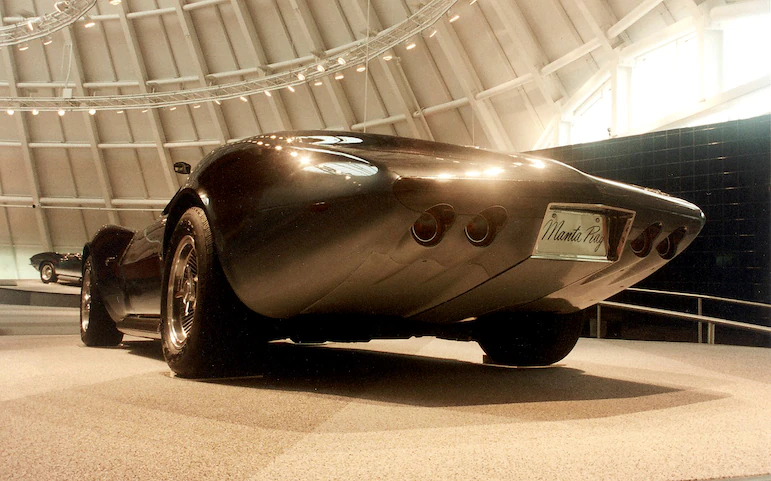 1969 Chevrolet Manta Ray concept model at the GM Heritage Center
1969 Chevrolet Manta Ray concept model at the GM Heritage Center
In conclusion, the Manta Ray concept still exists today and is now a part of the GM Heritage Center, which is in the process of moving from Sterling Heights to Grand Blanc Township with their 600+ car collection. The 1969 Corvette Manta Ray model will always be a special concept car that served a purpose and vision, highlighting the great automotive designs from the GM’s history. Bibliography
Ludvigsen, Karl. “Corvette, America’s Star-Spangled Sports Car: The Complete History.” Automobile Quarterly Publications, 1974.
Lamm, Michael & Holls, David. “A Century of Automotive Style: 100 Years of American Car Design.” Lamm-Morada Publishing Company Inc., 1996-97.
Motor Trend Magazine. “1969 Manta Ray Show Car: Bill Mitchell’s Extreme Shark.” 1969.

